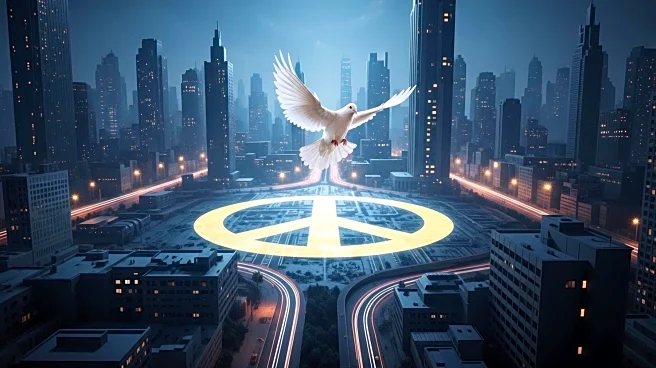What is the story about?
What's Happening?
The Israeli defense establishment is actively preparing to move 100,000 tents to a new humanitarian area in anticipation of a military push into Gaza City. This initiative is part of a broader effort to address potential outbreaks of epidemics among displaced Palestinians. The plan includes expanding medical services and distributing vaccines, with a particular focus on polio vaccines. The humanitarian zone is being set up in Khan Yunis, located in the southern Gaza Strip, where many Palestinians have already sought shelter due to ongoing military operations. This move underscores the Israeli government's efforts to mitigate the humanitarian impact of its military actions while continuing its strategic objectives in the region.
Why It's Important?
The establishment of a humanitarian zone is crucial in preventing a health crisis among displaced populations in Gaza. By providing shelter and medical services, Israel aims to reduce the risk of epidemics, which could exacerbate the already dire conditions faced by Palestinians. This action reflects the complex balance between military objectives and humanitarian responsibilities. The situation in Gaza has significant implications for regional stability and international relations, as it draws attention from global stakeholders concerned about human rights and the humanitarian impact of military operations. The provision of vaccines and medical services is a critical step in addressing immediate health needs and preventing long-term public health issues.
What's Next?
As the military offensive progresses, the effectiveness of the humanitarian zone will be closely monitored by international observers and humanitarian organizations. The Israeli government may face pressure to expand its humanitarian efforts and ensure adequate resources are allocated to support displaced populations. Additionally, diplomatic discussions may arise regarding the broader implications of the military actions and the humanitarian response. The situation could lead to increased international scrutiny and calls for a ceasefire or negotiations to address the underlying conflict.















